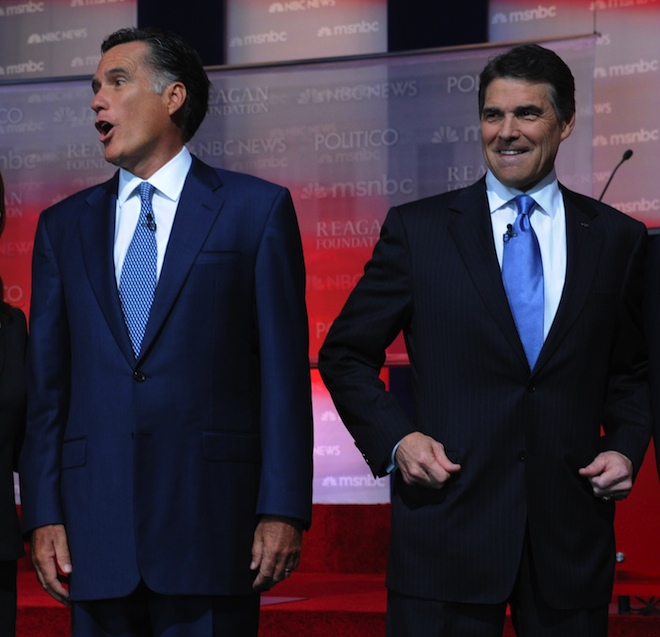After 2008, the GOP realized they had a problem with their presidential primaries: they weren’t long enough.
While John McCain wrapped up the nomination in February, Democrats kept duking it out for months, sucking up voters’ undivided attention while the presumptive Republican nominee struggled to get noticed.
The result was in no small part thanks to the two parties’ systems for awarding delegates: while Democrats awarded them proportionally, Republicans relied on a more winner-takes-all approach, meaning that McCain was able to turn narrow wins into a crushing delegate count even while winning with relatively modest margins. But the RNC is looking to change that now, instituting new rules requiring states holding primaries before April 1 to award at least some of their delegates proportionally.
John Ryder, a Republican committeeman in Tennessee who helped draft the new rules, credited the Democrats extended primary season with “extensive media attention, increased voter registration, and heightened levels of partisan activity.”
“It appeared that we could benefit by a somewhat longer process,” he told TPM.
Certainly in 2008, pure proportional representation would have made a difference. Mitt Romney dropped out after the February 5 Super Tuesday races with John McCain holding a commanding delegate lead of 664 to 313. But according to a study by University of Arizona professor Barbara Norrander, Romney would have actually led 425 to 422 under proportional rules, allowing him to stay in the race.
Stats like that and a divided GOP field without a dominant frontrunner in 2012 have led at least one Republican committee member to openly predict a brokered convention to Slate’s Dave Weigel, with none of the candidates coming up with a majority of delegates.
So are we looking at some endless slog? Not necessarily.
For one thing, the new rules aren’t too ironclad as to what awarding “proportional” delegates actually means. Josh Putnam, a professor at Davidson College who has been closely tracking the process, noted to TPM that most of the states where McCain racked up his big early majorities would still have qualified under the new rules. Some states can meet the requirements by awarding only some of their delegates proportionally, for example, with the a separate pool going to the overall winner. Others can still use a winner-takes-all system on the Congressional district level, which can still result in hugely disproportionate delegate advantages even with only modest leads statewide. They can also institute thresholds so that candidates need to meet a certain level of support to qualify for any delegates, preventing some of the lower tier candidates from hanging on.
“My theory all along has been we won’t see that much fundamental change in terms of allocation,” Putnam told TPM.
Norrander agrees, putting the odds of a brokered convention especially at next to nothing.
“I sincerely doubt it,” she said. After all, just because primaries are awarded more proportionally doesn’t mean it’s always a long primary. Take John Kerry’s 2004 victory, where a last minute sprint in Iowa over a fading Howard Dean swiftly led Democrats to unify behind him and force out the rest of the field.
If the cards fall just right, a close two-man race could drag on as long as both sides have money and a plausible shot at the nomination. But it doesn’t look like the new rule changes are likely to be the decisive factor. The bigger question mark now is the schedule more than apportionment issues. A number of major states are threatening to buck the RNC rules and push their primaries into January, a move that could lead to an unusually high number of early contests. If the field stays relatively divided heading into the first states, they could split several primaries and caucuses, making the frontrunner less clear heading into Super Tuesday.
And even if things do stay tight after then, Ryder says the failsafe should kick in: the more than two dozen states and territories holding races after April 1, when the “winner takes all” rules are once again allowed.
“We did not want to see it go too long — i.e. to the end of June,” Ryder told TPM. “After April 1, states are winner take all and those states will play an important role in selecting the nominee.”









